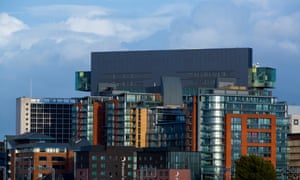Geographical inequalities are the result of historical legacies and a fractured economy

Manchester’s economic performance has been strong.
Photograph: Christopher Thomond for the Guardian
Place has always been destiny in Britain, but never more so than in 2018. Pity the child born in Weymouth, Corby or Carlisle, locked into poor schools, a lacklustre economy and few decent jobs; if he or she had been lucky enough to be born in Tower Hamlets, Hackney or Westminster, their life chances might have been transformed. Where you are born in Britain, and England in particular, is becoming ever more a treacherous geographical lottery.
Nor is the divide any more just the well-known one between north and south. So relatively strong are the performances of Bristol and Manchester, with Liverpool hard on their heels, that overlaid on the old north-south split is the beginnings of a new one – an east-west divide. Parts of the north-west such as Trafford and North Cheshire are strong economic and social performers, while the towns along the M4 and Bristol itself are doing pretty well.
Since the financial crisis, two western regions of England – the north-west and West Midlands – have been growing at twice the rate of the east. The Financial Times reported on 14 Februarythat the average output per head from the west’s workers is now a full £2,000 higher than for those in the East Midlands, Yorkshire and the north-east – and the gap is widening. Productivity is growing faster in the west as a result, and business confidence in the north-west is much higher than the national average.
Continue reading
No comments:
Post a Comment